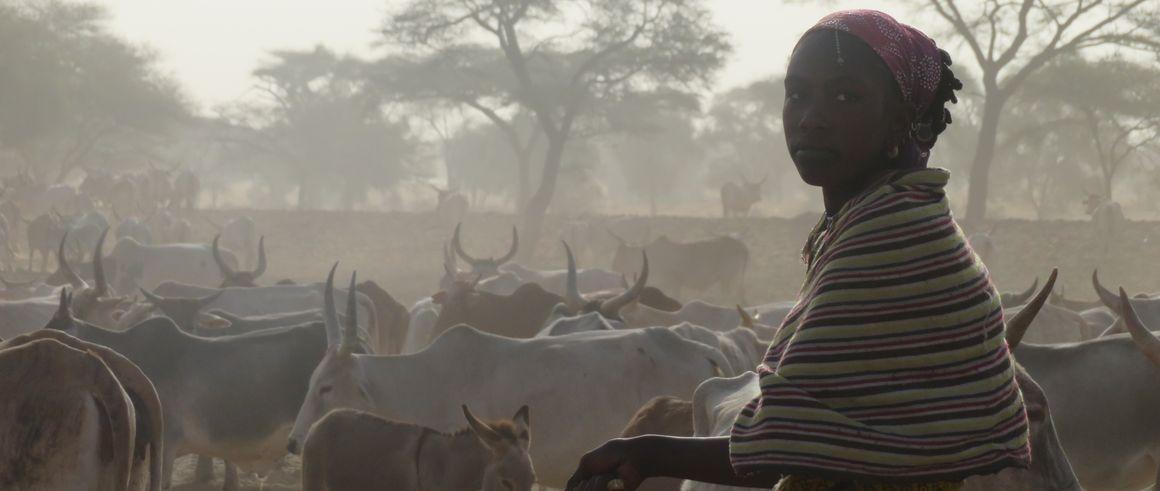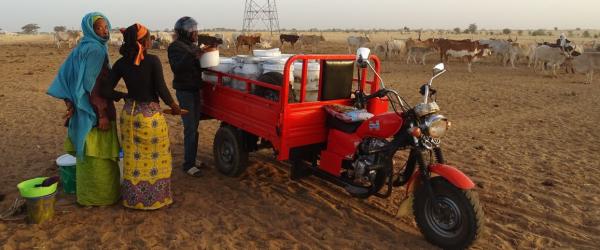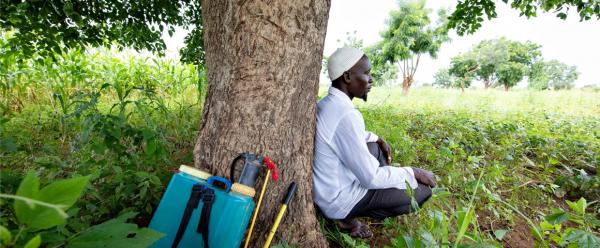Expert view 27 September 2024
- Home
- Press area
- Press releases
- "One Health" IPCC
For or against an IPCC for “One Health”?

The “One Health” approach considers human health in connection with animal and environmental health. © S. Taugourdeau, CIRAD
The Covid-19 pandemic underscored the need for better global governance of pandemic prevention, preparedness and response. The World Health Organization (WHO), the World Organisation for Animal Health (WOAH), the Food and Agriculture Organization of the United Nations (FAO) and the United Nations Environment Programme (UNEP) thus signed a joint plan of action in 2022 to better institutionalize and operationalize the “One Health” approach.
The crisis also highlighted the importance of coordinating knowledge production at the global level and improving access to it between different countries and populations. In an article published in The Lancet Global Health, a team of researchers examines the advantages and disadvantages of creating an Intergovernmental Panel for One Health (IPOH). The “One Health” approach considers human health in connection with animal and environmental health.
Similar to the Intergovernmental Panel on Climate Change (IPCC), an IPOH would facilitate knowledge uptake in policymaking through a multisectoral “One Health” approach, and would thus support the control of infectious disease emergence and re-emergence at the human-animal-environment interface.
“A structure of this kind would bring together a global network of scientists to produce syntheses of knowledge and to assess avenues for action. This would represent a change of scale for the OHHLEP Expert Panel set up at the request of WHO, WOAH, FAO and UNEP in May 2021, which is a light structure of 26 experts”, says Alexandre Hobeika, a researcher in political science at CIRAD and co-lead author of the publication.
According to the authors, the creation of a larger panel with greater scope would be beneficial in that it would keep pandemic preparedness on the policy agenda, improve the quality of the scientific debate and better represent the interests of poor countries and marginalized populations. However, it would be likely to complicate the system and to lack real impact. But “its cost would be limited and its effectiveness would mainly depend on the political uptake of its recommendations”.
The researchers advocate integrating these advantages and disadvantages into the design of institutional reforms for a more effective world health system. To limit future risks, the authors insist on the need to strengthen prevention, the resilience of socioeconomic systems and equity between populations.
Reference
Hobeika Alexandre, Stauffer Maxime Henri Tibault, Dub Timothee, Van Bortel Wim, Beniston Martin, Bukachi Salome, Burci Gian Luca, Crump Lisa, Markotter Wanda, Sepe Ludovico Pasquale, Placella Enrichetta, Roche Benjamin, Thiongane Oumy, Wang Zhanyun, Guérin Frédérique, Van Kleef Esther. 2023. The values and risks of an intergovernmental panel for one health to strengthen pandemic prevention, preparedness, and response. Lancet. Global Health, 11 (8) : 1301-1307. https://doi.org/10.1016/S2214-109X(23)00246-2
The One Health (OH) approach is widely broadly adopted across sub-Saharan Africa. Coordination structures linking ministries, concrete action plans and training courses have been validated and are gradually being implemented. West Africa has opted for a regional approach, several East African countries, such as Ethiopia and Kenya, adopted the approach a decade ago, and central and southern Africa are following suit. "The challenge now is to integrate environmental health into the OH approach more effectively. Countries are capitalizing on their experiences and sharing the progress made, supported by their national universities' expertise, to facilitate a nationwide OH approach. The universities are training growing numbers of health managers in the approach", says Alexandre Caron, a health ecologist who is COHESA project coordinator for CIRAD.


























